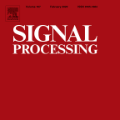In global healthcare, respiratory diseases are a leading cause of mortality, underscoring the need for rapid and accurate diagnostics. To advance rapid screening techniques via auscultation, our research focuses on employing one of the largest publicly available medical database of respiratory sounds to train multiple machine learning models able to classify different health conditions. Our method combines Empirical Mode Decomposition (EMD) and spectral analysis to extract physiologically relevant biosignals from acoustic data, closely tied to cardiovascular and respiratory patterns, making our approach apart in its departure from conventional audio feature extraction practices. We use Power Spectral Density analysis and filtering techniques to select Intrinsic Mode Functions (IMFs) strongly correlated with underlying physiological phenomena. These biosignals undergo a comprehensive feature extraction process for predictive modeling. Initially, we deploy a binary classification model that demonstrates a balanced accuracy of 87% in distinguishing between healthy and diseased individuals. Subsequently, we employ a six-class classification model that achieves a balanced accuracy of 72% in diagnosing specific respiratory conditions like pneumonia and chronic obstructive pulmonary disease (COPD). For the first time, we also introduce regression models that estimate age and body mass index (BMI) based solely on acoustic data, as well as a model for gender classification. Our findings underscore the potential of this approach to significantly enhance assistive and remote diagnostic capabilities.
翻译:暂无翻译





